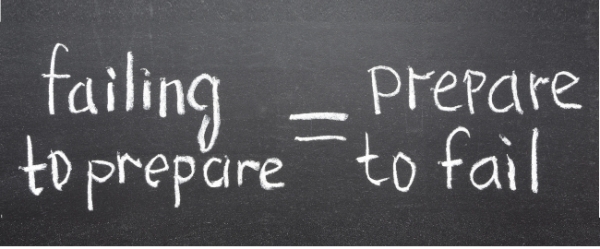1) Plan your time.
This consists of creating marking and planning rotas – or what I like to call “planning your planning”. There’s a trick to this. Be savvy – have a look at the class lists you are getting and jot down the number of students in each class. Write down the lessons you have in the week, and any evenings you have CPD or training, as well as mornings you have briefings. When working out the rota, put your smaller-sized classes against days when you have CPD, and larger ones when you don’t. When making the planning rota, take into account the days you have non-contact lessons. Working on my next tip should see you being able to plan two lessons in a one hour non-contact period. Last year, I had 10 classes. I marked one set of books per weekday and stuck religiously to my rota. The only time I actually worked a weekend was when we had a teaching review. One weekend out of the 30-odd there are in the teaching year - not bad!
2) The ’30 minute’ rule.
The 30 minute rule came about because I realised I didn’t have the luxury of countless non-contact periods during my NQT year, compared to my teacher-training year. I had to plan more lessons, a lot more, but I knew that spending an hour planning one lesson was just unsustainable. I made myself a promise to not spend any longer than 30 minutes planning and resourcing a lesson. What I found was that it was quite a good amount of time to spend – it kept my thinking sharp, so that my lesson really did progress in a logical manner and it also meant that I had a good lesson ready that would only need writing out should I be observed. Remember to focus on the question “what do I want my students to do at the end of the lesson?” Work backwards from this for a logical progression to your endpoint.
3) Make your marking meaningful.
Marking is the most arduous task that a teacher will face, with perhaps the exception of exam-board paperwork! I always think to myself: if I am going to do it, I need to do it for a purpose. It’s good to correct students’ work, however, for me, if I were to correct every single capital letter some students miss out or write a paragraph giving feedback, it would take me hours.
My first time saving hints to take the pain out of marking for Literacy are to simply circle the orthographic error or underline the spelling mistake. My students know wherever there is a circle or an underlined word, they need to do something and that I will challenge them if it hasn’t been addressed. This forces the students to metacognitively reflect on their Literacy skills and it saves me from messing their work up with countless red capital letters and words. "I knew that spending an hour planning one lesson was just unsustainable." My second tip comes to marking for progress. My students, and most probably yours, don’t like reading paragraphs of feedback. If you do this, I find you spend half of your feedback time answering the question, “Miss/Sir, what does this word say?” What I decided to do was write three words – “to make progress” and leave a series of bullet points of what to do next. Each bullet point never has more than three words to it. What I found was that my students actually took it upon themselves to tick off each point when they had completed it – making it easy for me, and any inspectors / senior management, to see that they had read my feedback. All that was left for me to do was to read it, correct it and mark it with a + / = / - depending on whether they had met my targets, partially met them or completely missed them. It’s a great way to show dialogue and students seem keen to meet each target to progress on their learning journey.
The biggest pro for making marking meaningful is that it can eat up a good 10 minute chunk of a lesson if you get them to respond to it on a regular basis, saving you planning time!
4) Know your levelling criteria.
If you know how your levelling system works, it can make differentiation extremely easy through a bronze / silver / gold system. If you make generic sentences to match each level criteria for your bronze / silver / gold, in which all you need to do is change a word or two in the sentences to make it applicable to the task in hand, it will save you a lot of time and will make differentiation in your lesson blatantly obvious to anyone observing. Also use these sentences in a more condensed form in your marking feedback to differentiate your feedback.
5) Routines, routines, routines.
Having been observed by HMI and by an Ofsted inspector, one of the things I have noticed they seem to look for on a regular basis in lessons is routine. Having shared recorded lessons with colleagues, it struck me how different my routines are to theirs. The clear message, however, is that it doesn’t necessarily matter how you give orders or give out ‘tat’, just keep it consistent.
Being an MFL teacher, I have certain catchphrases which the students are so used to they they will say them along with me or finish the sentence should I stop halfway through. Some people might see it as shouting out, but for me it shows an active participation in my lesson and that they are buying into the French / Spanish that I’m teaching them. If I didn’t have this routine and tried doing it to impress an observer, I would fall flat on my face. Inspectors know exactly when you are trying to put on a show, and sometimes it can lower your lesson grading if it doesn’t quite go to plan. Personally, I think the strongest reason for routine is that it reduces the chances of students behaving unpredictably in your classroom territory. My students get given paraphernalia to give out as soon as they walk through my door – setting the tone that I am not wasting a minute of time. They know what to exactly what to expect from the moment they cross the doorstep and routine sets the tone for a smooth lesson. But the routine of shouting out and completing my cheesy catchphrases also creates a good atmosphere and they enjoy finishing them off – showing a good rapport.
6) Dedicate yourself some ‘me’ time. "The strongest reason for routine is that it reduces the chances of students behaving unpredictably.” and “Whatever your venting-outlet is, make sure you dedicate time to it." This year, I have to thank medium-distance running for helping to keep me sane. Possibly the hardest moment of the year, for me, was when I started suffering from tendinitis in my left foot just as the GCSE paperwork had to be done and about a month before the GCSE exams. It was the first time the pressure really got to me and it was because I didn’t have an outlet to help me vent. Whatever your outlet is, be it painting, running or the popular teacher pastime of knitting, make sure you dedicate time to it. At the end of the day, if you’re not feeling your best, you won’t be performing at your best for the children.
7) Don’t be afraid to ask for help.
Teaching can be tough and there’s often no right or wrong way in which to deliver your subject content. Furthermore, there will be times when you will feel simply bogged down by your workload. But remember: there are other people in your department who may have resources to lend you, who will know what has worked for them in the past and who will help you should you ask. Make sure you ask before you get yourself into a rut with what to do – getting yourself down.
8) Enjoy every minute!
Some of the biggest laughs and funniest moments I’ve had have been in my classroom. If you enjoy your lessons, your students will sense it and they will enjoy them, too.
These are eight rules that I followed last year, that have helped me and that I will be taking on this as a Recently Qualified Teacher (RQT). I hope some of these will be of help to you, too. It is a difficult year, no word of a lie, but also possibly the most amusing, enjoyable and rewarding experiences I’ve had in my life.
Does this relate to your NQT year? Share your experiences below.


















